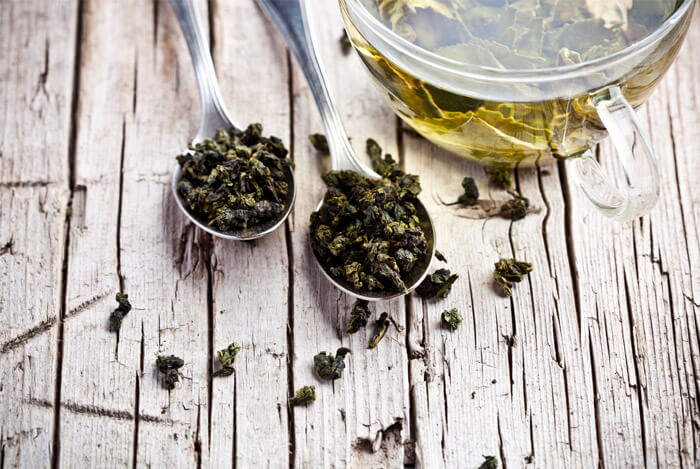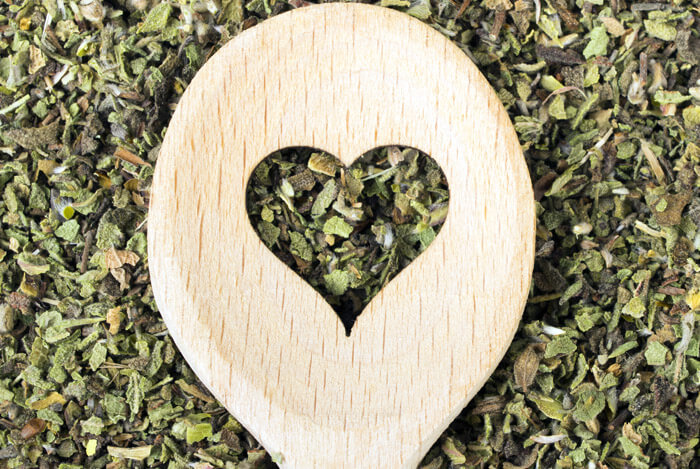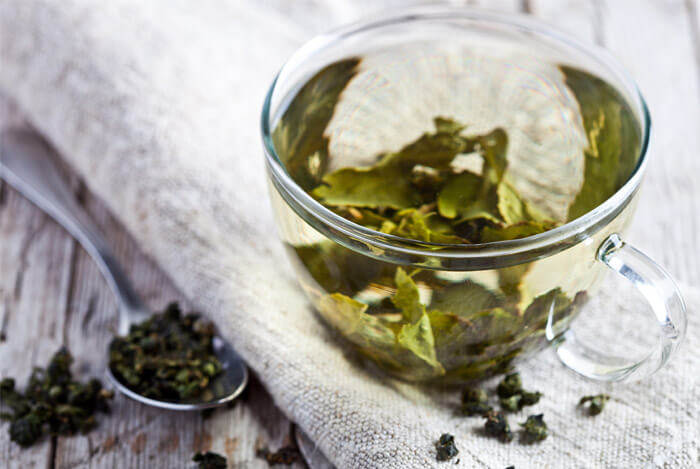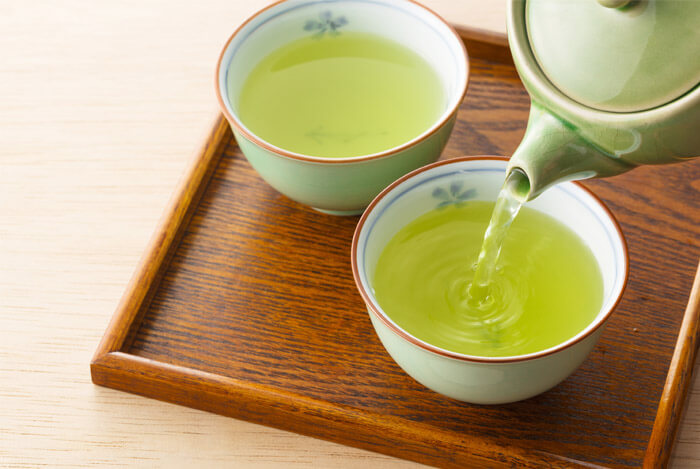Why all the buzz around green tea? Is it because green tea comes from Asia, and therefore has to be good for you?
Well, obviously not. Although one research scientist, Dr. Christopher Ochner, said on WebMD that “it’s the healthiest thing I can think of to drink”.
Now, I’m not saying that all you have to do is drink green tea and all of your health concerns will suddenly melt away, but it would be nice to know how green tea is so good for you, and more importantly, why.
Let’s get into some details here, so next time you grab that iced-green tea, you can feel extra good about yourself (hold the sweetener)!
Table of Contents
+1. Chock Full of Antioxidants

Antioxidants, why are they good for us anyway?
Well, when we eat, our bodies have to turn food into energy. As a result, this generates some byproducts within our bodies called free radicals. Free radicals can damage our cells and may be a driver in aging.
But have no fear, we can combat the negative effect of free radicals by consuming antioxidants, and one great way to do this is by drinking green tea.
In clinical trials published by the American Society for Nutritional Sciences, scientists found that numerous studies suggested that the consumption of tea may bring positive health effects. The hypothesis behind these benefits stems from the high levels of flavonoids, antioxidants that scavenge free radicals.
Benefits of flavonoids include, but are not limited to:
- Fighting Viruses
- Helping Prevent Cancer
- Preventing Inflammation
- Helping with Allergies
2. Cancer Fighter

A cup of tea keeps the doctor at bay? According to cancer.gov, definitely possible!
Green tea has been shown to activate our internal cancer-fighting enzymes which may hinder tumor growth. Many teas are packed with antioxidants, but the direct mechanism of cancer prevention hasn’t yet been fully established. The good news is there is a relationship between cancer prevention and tea consumption.
According to livescience.com, an ongoing study of women with breast cancer showed that polyphenols in green tea may slow down proteins that are part of tumor cell growth.
Dr. Katherine Crew, assistant professor of medicine and epidemiology at Columbia University, also conducted a study in men with prostate cancer and found that green tea drinkers had markedly lower prostate-specific antigen, which is linked to prostate tumor growth.
So see?
Evidence suggests that both sexes can enjoy the cancer-fighting benefits of green tea.
3. Brain Enhancement

Drink tea and be smarter! Sound too good to be true?
Until last year, the effects of green tea on cognitive function were speculative, but with the improvements in functional magnetic resonance imaging (fMRI), Dr. Stefan Borgwardt could view the increased connectivity in the cortices of the brain after consumption of green tea. Specifically, green tea drinkers showed increased connectivity in key parts of the brain associated with memory.
The study used healthy male volunteers and found that when given a soft drink containing green tea extract, those consuming green tea extract not only showed increased connectivity in parts of the brain, but improved performance on working memory tasks as well.
Let me go brew a mug real quick before I finish the rest here!
4. Anti-Anxiety and Relaxation

Green tea comes packed with l-theanine, and l-theanine may help you to relax and avoid anxiety.
A study published in the Journal of Trends in Food Science & Technology by Dr. Juneja and team states that theanine acts as a neurotransmitter that increases alpha waves in the brain. Alpha waves are considered to be an indicator of relaxation. Human volunteers were given 50-200 mg of l-theanine and were shown to have increased alpha waves without drowsiness.
So it appears you can drink green tea to help mellow you out, without falling asleep. I better gift some to my buddy.
5. Heart Health

According to the Harvard Heart Letter, Japanese adults who drank more than five cups daily were at 26% lower risk of heart attack or stroke. While research around mechanisms of action is limited, there were no red flags, so it can’t hurt.
In another study, Athens Medical School took 14 volunteers and had them either drink green tea or caffeinated hot water. Using blood pressure cuffs and ultrasound to check whether arteries were widened or not, the doctors found that those that drank green tea had significantly wider arteries, meaning lower risk in heart diseases like atherosclerosis.
6. Fat Burner

“Green tea has thermogenic properties and promotes fat oxidation beyond that explained by its caffeine content per se”. That’s what Dr. Abdul G. Dulloo, author of a study published in the American Journal of Clinical Nutrition said to WebMD.
Another piece in the Journal of Advances in Nutrition mentioned that a number of studies have witnessed how green tea can improve fat burning.
While overall research is still limited, given the health benefits of green tea, if it is a fat burner to boot, why not?
We already know that green tea is full of antioxidants, is good for both the heart and brain, and can help fight cancer, so why shouldn’t we drink it?
7. Anti-Bacterial

Get sick, and the doctor gives you antibiotics. We’ve all been there, but are prescribed antibiotics the way to go? I think not! What about a natural remedy? Now I’m not saying green tea will cure you once you’re already infected (probably not), but it certainly can’t hurt.
Green tea contains other antioxidants called catechins. According to a study published in the Food Science Technology Bulletin, these catechins, specifically epigallocatechin gallate (EGCG) and epicatechin gallate (ECG), can hinder development of many bacterial species.
While green tea isn’t a cure-all for all of your health woes, adding some to your diet could help you become healthier.
Do you have any tips for me?
What’s your take on the health benefits of green tea? Have anything else you’d like to share? Let me know in the comments below!
+ Scientific References
- Taylor, P. W., Hamilton-Miller, J. M. T., & Stapleton, P. D. (2005). Antimicrobial properties of green tea catechins. Food Science and Technology Bulletin, 2(7), 71. /pmc/articles/PMC2763290/
- Hodgson, A. B., Randell, R. K., & Jeukendrup, A. E. (2013). The Effect of Green Tea Extract on Fat Oxidation at Rest and during Exercise: Evidence of Efficacy and Proposed Mechanisms. Advances in Nutrition, 4(2), 129–140. https://doi.org/10.3945/AN.112.003269
- Chu, D. C., Okubo, T., Nagato, Y., & Yokogoshi, H. (1999). L-theanine—a unique amino acid of green tea and its relaxation effect in humans. Trends in Food Science & Technology, 10(6–7), 199–204. https://doi.org/10.1016/S0924-2244(99)00044-8
- American Association for Cancer Research. (n.d.). Mechanisms of action for green tea extract in breast cancer prevention identified -- ScienceDaily. Retrieved August 10, 2021, from https://www.sciencedaily.com/releases/2012/10/121018151940.htm
- Rietveld, A., & Wiseman, S. (2003). Antioxidant Effects of Tea: Evidence from Human Clinical Trials. The Journal of Nutrition, 133(10), 3285S-3292S. https://doi.org/10.1093/JN/133.10.3285S









